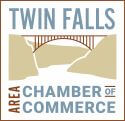Mastering the Secrets to a Successful Franchise Venture
Franchising offers the opportunity to start a business with the support of an established model, combining entrepreneurship with a proven path to success. While it provides benefits like reduced marketing costs and strong support systems, it also involves challenges that require careful thought. Each decision, from choosing the right franchise to managing operations, demands thorough consideration. This journey into franchise ownership is both exciting and complex, with unique rewards and obstacles.
The Impact of Comprehensive Training and Ongoing Support
When you decide to open a franchise, the training and support provided by the franchisor are crucial to your success. Typically, training programs vary in duration, spanning several days to multiple weeks, and are often held at the franchisor’s headquarters or training centers. However, many franchisors now offer online training modules that you can complete at your convenience, thanks to advancements in technology. This comprehensive training covers everything from understanding the brand’s standards to mastering daily operations, ensuring you are well-prepared to manage your business.
Leveraging Brand Recognition for Marketing Efficiency
One significant advantage of opening a franchise is the reduction in marketing expenses due to pre-existing brand awareness. This inherent recognition means you don’t need to invest heavily in building your brand from the ground up. Companies with strong brand awareness can leverage their established reputation to attract customers more effectively. Moreover, well-known brands often experience higher conversion rates because potential customers are already familiar with and trust the brand.
Streamlining Financial Management with Digital Tools
Implementing a Document Management System (DMS) to manage your business financials can significantly enhance efficiency and accuracy. A DMS allows you to store, organize, and retrieve financial documents effortlessly, reducing the risk of errors and ensuring compliance with regulatory standards. Additionally, converting PDF to Excel files facilitates easy manipulation and analysis of tabular data, offering a more versatile and editable format. Once you have made the necessary edits in Excel, you can resave the file as a PDF, maintaining the integrity and security of your financial information.
Mastering the Profile of Your Ideal Franchise Customer
To effectively open a franchise, you need a comprehensive understanding of your target customers’ demographic and psychographic profiles. Demographically, consider aspects like age, income, education levels, and location, as these factors will influence how and when your customers shop. Psychographic data, which includes customers’ values, lifestyles, and personality traits, requires more in-depth research, often through direct surveys. This detailed information allows you to tailor your marketing strategies precisely, ensuring a better connection with your audience.
Strategic Location: Competition and Complementary Businesses
When positioning your franchise, the proximity to competitors and complementary businesses can profoundly influence your success. Being near competitors may initially seem risky, but it can drive innovation and attract more customers, as the area becomes known for specific products or services, creating a bustling shopping district. Conversely, partnering with complementary businesses, such as a coffee shop next to a bookstore, can enhance customer convenience and boost sales for both parties by offering a well-rounded experience. Moreover, high competition can lead to competitive pricing, though it might squeeze profit margins, making it essential to strike a balance.
Navigating the Essentials of Franchise Agreements
Understanding the terms and conditions of a franchise agreement is crucial before committing to a franchise. A franchise agreement, a legally binding document, outlines the operational framework, including the rights and responsibilities of both the franchisor and franchisee. It typically covers key aspects such as franchise fees, territorial rights, duration, training, and dispute resolution mechanisms. Given the complexities and variances across different franchises, it’s advisable to seek legal counsel experienced in franchise law to navigate potential pitfalls and ensure compliance with regulations.
Evaluating the Length and Renewal of Franchise Agreements
When considering the ideal duration for a franchise agreement, it’s essential to balance the needs of both franchisors and franchisees. Typically, initial terms span from 3 to 10 years, with options for renewal extending 3 to 5 years each. This structure grants flexibility for franchise updates, allowing for changes in layout, signage, or equipment to reflect the latest standards. However, both parties must also consider the level of investment involved and the time needed to achieve a return on that investment.
Venturing into the realm of franchising is akin to embarking on an adventure with a time-tested treasure map in hand. While the path is laden with rewards, it demands savvy navigation, keen insights, and strategic actions. By appreciating the depth and breadth of training, harnessing brand power, understanding your customers, choosing optimal locations, scrutinizing agreements, and managing finances proficiently, you’re not just opening a franchise—you’re crafting a success story. Let this guide be your compass, steering you toward not just overcoming challenges but turning them into stepping stones for your flourishing franchise future.
Discover endless opportunities and grow your business by joining the Twin Falls Area Chamber of Commerce today!
